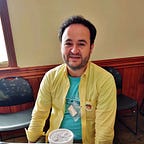Just a regular guy with a burning desire to sing: The B.J. Thomas interview
36 min readDec 27, 2016
How do you accurately take stock of an artist who conquered one musical genre after another without skipping a beat? In the case of legendary singer B.J. Thomas, let’s start with a list of his accomplishments. Forty-six of his singles appeared on Billboard’s pop, country, and adult contemporary charts between 1966 and 2000. Of those, 14 went Top 40 on the pop…
